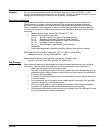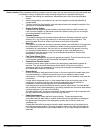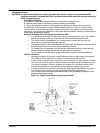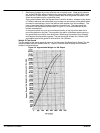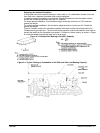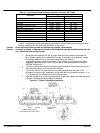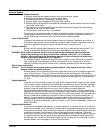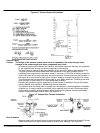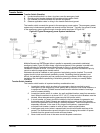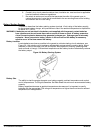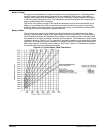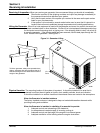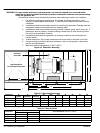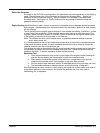
2‐10 General Information MN2408
Figure 2‐6 Exhaust System Calculations
Exhaust Piping
Caution: The weight of the exhaust system must never be imposed on the turbo-charger outlet.
Damage to the turbo-charger and other components may result.
An exhaust system must withstand the vibration and thermal expansion that they are subjected
to, yet supported well enough to remain independent of the engine.
The most common method of providing flexibility is with the use of bellows type flexible piping.
This piping component allows lateral and linear movement of the piping system without
subjecting fixed components to excessive stress. A minimum of 12 inches of flexible connection
must be provided at the engine exhaust manifold to allow for thermal expansion and vibration. If
the engine is to be mounted on spring type vibration isolators, increase the length to 24 inches.
This component can be specified to be provided by your Baldor distributor. Flexible pipe should
never be used for pipe bends or to cure misalignment problems.
Exhaust piping systems may be supported by a wide variety of methods to long as the system
remains flexible, and capable of withstanding thermal expansion.
The material most commonly used for straight runs and elbows in exhaust systems is Schedule
40 black iron. If hanging weight is a problem, other materials may be used. Galvanized piping
should never be used in exhaust system. Where exhaust piping passes through combustible
material, exhaust thimbles must be used. See Figure 2‐7.
Figure 2‐7 Exhaust Pipe Thimble Installation
Rain Protection
Moisture entering the engine through an exhaust system can cause extensive damage. Exhaust
outlets must have a rain cap or be horizontal to prevent such damage. See Figure 2‐7.




